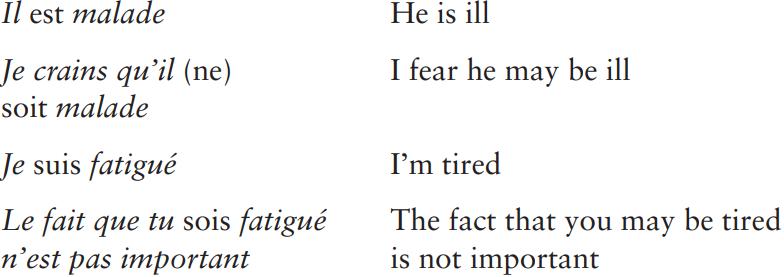


 Grammar
Grammar
 Tenses
Tenses
 Present
Present
 Past
Past
 Future
Future
 Parts Of Speech
Parts Of Speech
 Nouns
Nouns
 Verbs
Verbs
 Adverbs
Adverbs
 Adjectives
Adjectives
 Pronouns
Pronouns
 Pre Position
Pre Position
 Preposition by function
Preposition by function 
 Preposition by construction
Preposition by construction
 Conjunctions
Conjunctions
 Interjections
Interjections
 Grammar Rules
Grammar Rules
 Linguistics
Linguistics
 Semantics
Semantics
 Pragmatics
Pragmatics
 Reading Comprehension
Reading Comprehension|
Read More
Date: 2023-12-04
Date: 2023-09-19
Date: 2023-11-04
|
Grammatical categories
As we have seen in the examples above, inflection represents a morphological marking on items according to grammatical categories (for example tense, number or gender), which have a number of different values (e.g. masculine or feminine for gender). Categories relevant to English can have very different values and inflectional systems in other languages, as the brief survey of number and gender below will demonstrate.
Categories that are not manifested or that are marginal in English often play a significant role in the inflectional systems of other languages. Animacy, for example, is important in Navajo, in Basque and in Spanish, where animate direct objects are inflected with the preposition a:
está buscando una solución he is looking for a solution
está buscando a su hermano he is looking for his brother
For verbs, the category of aspect is marked more consistently than tense in Russian, the form of the verb indicating whether the action was perceived as ongoing or habitual (imperfective) or completed (perfective). Verbs may also be inflected for mood, the Romance languages notably having a full paradigm of inflections for the subjunctive mood, which marks the verbal action as hypothetical or in doubt, as in the following French examples:

|
|
|
|
دخلت غرفة فنسيت ماذا تريد من داخلها.. خبير يفسر الحالة
|
|
|
|
|
|
|
ثورة طبية.. ابتكار أصغر جهاز لتنظيم ضربات القلب في العالم
|
|
|
|
|
|
|
قسم شؤون المعارف ووفد من جامعة البصرة يبحثان سبل تعزيز التعاون المشترك
|
|
|